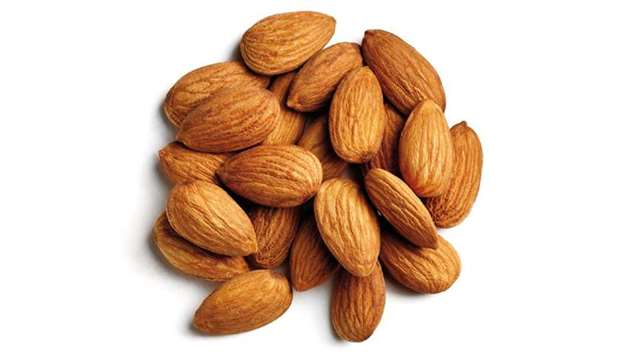Eating almonds on a regular basis may help boost levels of HDL cholesterol while simultaneously improving the way it removes cholesterol from the body, according to researchers.
In a study, researchers compared the levels and function of high-density lipoprotein (HDL cholesterol) in people who ate almonds every day, to the HDL levels and function of the same group of people when they ate a muffin instead.
The researchers found that while participants were on the almond diet, their HDL levels and functionality improved.
Penny Kris-Etherton, distinguished professor of nutrition at Penn State, said the study, published in the Journal of Nutrition, builds on previous research on the effects of almonds on cholesterol-lowering diets.
“There’s a lot of research out there that shows a diet that includes almonds lowers low-density lipoprotein, or LDL cholesterol, which is a major risk factor for heart disease,” Kris-Etherton said. “But not as much was known about how almonds affect HDL cholesterol, which is considered good cholesterol and helps lower your risk of heart disease.”
The researchers wanted to see if almonds could not just increase the levels but also improve the function of HDL cholesterol, which works by gathering cholesterol from tissues, like the arteries, and helping to transport it out of the body.
“HDL is very small when it gets released into circulation”, Kris-Etherton said. “It’s like a garbage bag that slowly gets bigger and more spherical as it gathers cholesterol from cells and tissues before depositing them in the liver to be broken down.”
In the controlled-feeding study, 48 men and women with elevated LDL cholesterol participated in two six-week diet periods.
In both, their diets were identical except for the daily snack.
On the almond diet, participants received 43 grams – about a handful – of almonds a day.
During the control period, they received a banana muffin instead.

